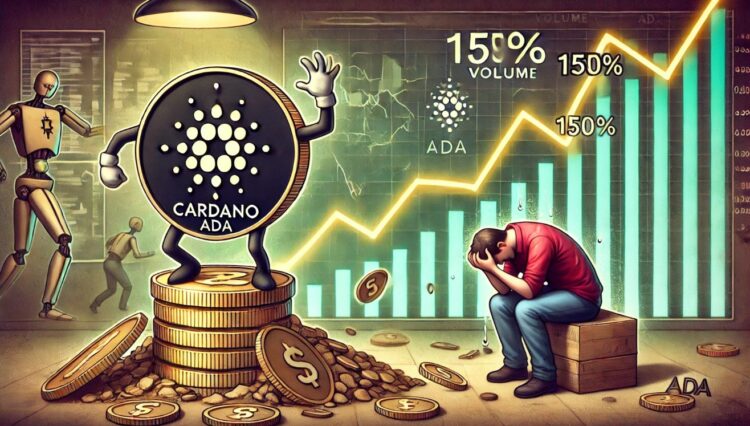The Cardano (ADA) blockchain has recently undergone significant advancements, solidifying its status as a leader in the cryptocurrency ecosystem. Spearheaded by Charles Hoskinson, the Chang hard fork upgrade in September has been a pivotal moment for the network, positioning it ahead of key competitors like Bitcoin (BTC) and Ethereum (ETH) in terms of decentralization and innovation.
Hoskinson Declares Cardano Remains Top Dog
Charles Hoskinson, a notable figure in the cryptocurrency world and co-founder of Ethereum (ETH), recently took to social media platform X (formerly Twitter) to reiterate Cardano’s dominant position, asserting that it is “still number 1.” His affirmation was echoed during his presentation at the Token2049 Conference in Singapore, where he delved into the new governance model that Cardano has adopted.
This innovative governance model is designed to “redistribute power” from a centralized few to the wider community, addressing a primary issue Hoskinson identifies within Ethereum’s “centralized structure.”
Ethereum’s Bottleneck vs. Cardano’s Innovation
Hoskinson has been vocal about Ethereum’s dependence on its founder, Vitalik Buterin, which he believes stifles innovation. In contrast, Cardano’s Chang hard fork has laid a robust groundwork for continuous development, independent of any single individual’s involvement. He underlined that delegated representatives (DReps) have the capability to interact, vote, and utilize a blockchain-based governance framework to routinely refine the network’s roadmap. He confidently stated, “Charles, alive or dead, doesn’t matter. There’s still going to be innovation on a daily basis.”
Moreover, the Cardano blockchain has demonstrated remarkable growth, with over 74,000 Plutus scripts and the creation of 1.3 million delegated wallets over the past seven years. The platform has also been a launchpad for approximately 1,373 projects, as evidenced in a video by Input Output Global (IOG), the driving force behind Cardano’s development.
Final Transition to Decentralized Governance?
In his recent social media update, Hoskinson shed light on Cardano’s strides in decentralized governance. He hinted that the network is on the brink of achieving significant milestones with future enhancements. Looking forward, Cardano intends to phase out its initial genesis keys, which have been crucial in the network’s administration since its inception.
This transformation will be bolstered by greater involvement from stake pool operators (SPOs) and DReps, alongside the formation of a Constitutional Committee (CC). The path toward a fully decentralized governance model includes ensuring that stake pool nodes satisfy operational standards and that decentralized applications (DApps) are nearing completion.
The ultimate transition to the Voltaire era, representing a completely self-sustaining blockchain, will occur with the final employment of the Genesis keys, prompting another hard fork. However, further announcements and timelines for these advancements are yet to be disclosed by IOG or Cardano’s founder.
Currently, Cardano’s native token ADA is trading at $0.352, marking a 2% price increase in the last 24 hours, showcasing a positive price recovery. This reflects the growing confidence in Cardano’s capabilities and its potential for future growth and innovation in the blockchain space.










